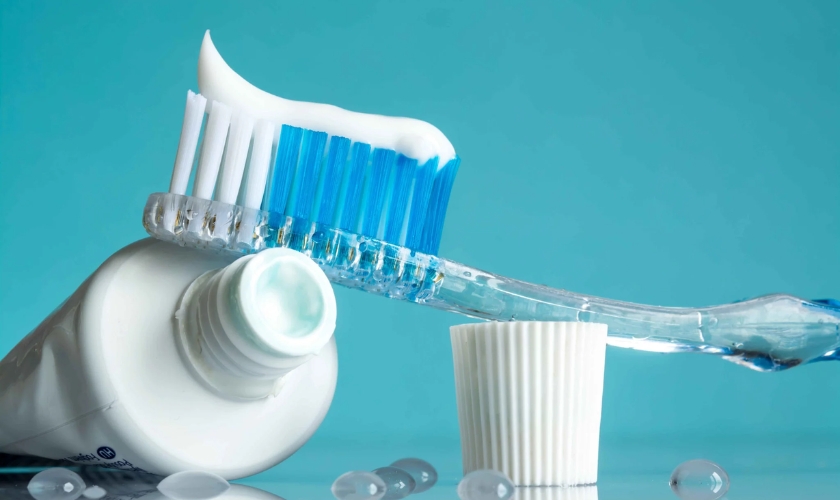What Happens When You Stop Using Fluoride Toothpaste

Fluoride toothpaste has long been hailed as a cornerstone of oral hygiene, playing a crucial role in preventing tooth decay and maintaining dental health. However, amidst growing concerns and misinformation about fluoride, some individuals may consider discontinuing its use. But what happens when you stop using fluoride toothpaste? In this comprehensive guide, we’ll explore the science behind fluoride, the benefits it offers for oral health, and the potential consequences of discontinuing its use.
Understanding Fluoride: The Basics
Fluoride is a naturally occurring mineral found in water sources, soil, plants, and certain foods. It has gained recognition for its ability to strengthen tooth enamel, making it more resistant to acid attacks from plaque bacteria and preventing tooth decay. Fluoride works through a process called remineralization, where it helps replace lost minerals in the enamel, ultimately reversing early stages of tooth decay.
In addition to its role in preventing cavities, fluoride also inhibits the growth of bacteria in the mouth, reduces plaque formation, and promotes overall oral health. For decades, fluoride has been added to public water supplies, toothpaste, mouthwash, and professional dental treatments as a proven method for cavity prevention.
Benefits of Fluoride Toothpaste:
- Prevents Tooth Decay: Fluoride toothpaste helps protect teeth against cavities by strengthening the enamel and making it more resistant to acid attacks.
- Remineralizes Enamel: Fluoride promotes remineralization of weakened enamel, repairing early signs of tooth decay and preventing further damage.
- Inhibits Bacterial Growth: Fluoride inhibits the growth of harmful bacteria in the mouth, reducing plaque formation and lowering the risk of gum disease.
- Safe and Cost-Effective: Fluoride toothpaste is considered safe and cost-effective, offering an accessible means of cavity prevention for individuals of all ages.
What Happens When You Stop Using Fluoride Toothpaste?
Now, let’s explore the potential consequences of discontinuing the use of fluoride toothpaste:
- Increased Risk of Tooth Decay: One of the most significant risks of stopping fluoride toothpaste use is an increased susceptibility to tooth decay. Without the protective benefits of fluoride, teeth may become more vulnerable to acid attacks from plaque bacteria, leading to cavities and dental erosion.
- Weakened Enamel: Fluoride plays a crucial role in strengthening tooth enamel and remineralizing weakened areas. Without an adequate supply of fluoride, enamel may become weaker over time, making teeth more prone to damage and sensitivity.
- Greater Risk of Gum Disease: In addition to preventing cavities, fluoride also helps inhibit the growth of bacteria that contribute to gum disease. Discontinuing fluoride toothpaste use may increase the risk of gingivitis and periodontitis, leading to gum inflammation, bleeding, and eventual tooth loss if left untreated.
- Potential Increase in Dental Costs: Dental treatments to repair cavities, treat gum disease, and address other oral health issues can be costly. By forgoing fluoride toothpaste, individuals may face higher dental expenses associated with the need for more extensive dental care.
- Impact on Overall Health: Poor oral health has been linked to various systemic health conditions, including cardiovascular disease, diabetes, and respiratory infections. Neglecting oral hygiene, including the use of fluoride toothpaste, may have broader implications for overall health and well-being.
- Loss of Preventive Benefits: Fluoride toothpaste offers preventive benefits beyond cavity protection, including plaque control and bacterial inhibition. By discontinuing its use, individuals may miss out on these additional advantages, increasing the likelihood of oral health issues.
Alternative Options for Fluoride-Free Oral Care:
While fluoride toothpaste remains the gold standard for cavity prevention, some individuals may opt for fluoride-free oral care products due to personal preferences or concerns. Fortunately, there are alternative options available to maintain oral health without fluoride:
- Non-Fluoride Toothpaste: Several brands offer fluoride-free toothpaste options that utilize alternative ingredients such as calcium phosphate, xylitol, and herbal extracts for cavity prevention and enamel protection.
- Water Filtration Systems: For those concerned about fluoride exposure from tap water, water filtration systems can help remove fluoride and other contaminants, providing an alternative source of drinking water.
- Dietary Modifications: Consuming a balanced diet rich in calcium, vitamin D, and other essential nutrients can support oral health and strengthen tooth enamel naturally.
- Regular Dental Check-Ups: Regardless of fluoride use, routine dental check-ups and professional cleanings are essential for maintaining oral health and addressing any emerging issues promptly.
The Importance of Fluoride Toothpaste in Oral Hygiene
Fluoride toothpaste plays a vital role in preventing tooth decay, strengthening enamel, and promoting overall oral health. While some individuals may choose to explore fluoride-free alternatives, it’s essential to weigh the potential consequences carefully.
By understanding the benefits of fluoride and the risks associated with discontinuing its use, individuals can make informed decisions about their oral hygiene routine. Ultimately, maintaining good oral health requires a combination of proper oral hygiene practices, regular dental care, and a balanced diet to keep teeth and gums healthy for a lifetime.
Whether you choose fluoride toothpaste or opt for fluoride-free alternatives, prioritizing oral health is key to a bright, healthy smile and overall well-being. Remember, a little fluoride can go a long way in protecting your teeth and preserving your oral health for years to come.
Looking For a Dentist in Alexandria, Virginia
We are here to help you and support you with all of your oral health needs. If you think you could have dental problems, call our Alexandria dentist today. We are always happy to answer any questions you have. Schedule an appointment now.



